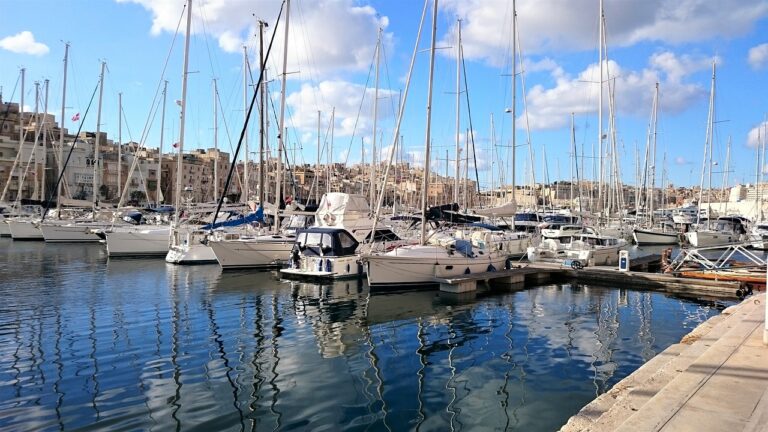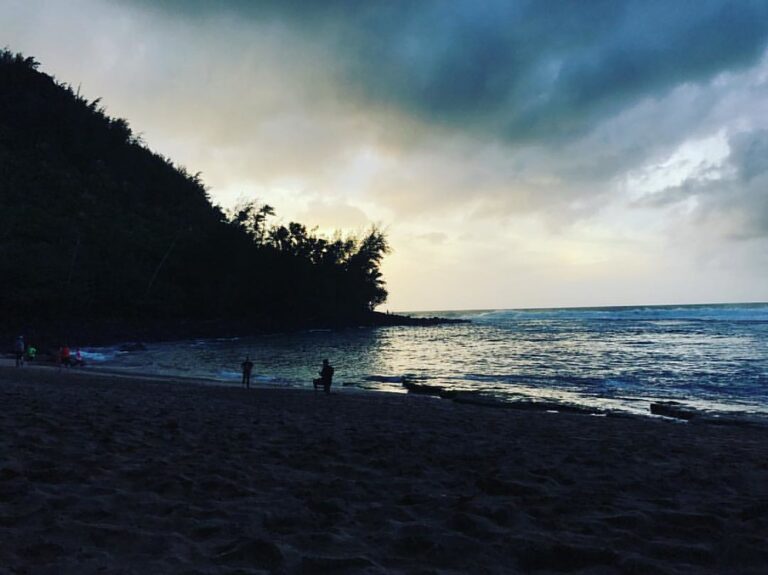What Is Backpackers Diarrhea?
Backpacker's diarrhea is a pesky travel companion that can ruin your adventure. Contaminated food and water are the main culprits, along with poor hygiene practices. Symptoms range from loose stools and frequent bathroom trips to abdominal cramps and bloating. High-risk destinations like South America and Southeast Asia are breeding grounds for bacteria and viruses. To avoid the misery, stick to safe food and water practices, and prioritize good hygiene. With some know-how and prep, you can minimize the risk and enjoy your travels. And, if you're curious to learn more about how to avoid this travel bug, keep going…
Causes of Traveler's Diarrhea
Microbial miscreants, lurking in contaminated food and water, are the primary culprits behind traveler's diarrhea, responsible for spoiling the adventures of even the most seasoned globetrotters. These pesky pathogens can be found in undercooked meat, raw vegetables, and untreated water, making it a challenge to avoid them altogether.
Food vendors and street stalls often lack proper refrigeration, handling, and cooking techniques, increasing the risk of contamination. Furthermore, ice cubes, unpeeled fruits, and raw dairy products can also harbor these pathogens.
When exploring foreign lands, it's essential to be mindful of local food and water hygiene practices. In some countries, tap water may not be potable, and even ice cubes can be made from contaminated water.
To minimize the risk of contracting traveler's diarrhea, it's vital to be vigilant about what you eat and drink. Avoid consuming undercooked meat, raw vegetables, and unpasteurized dairy products. Stick to cooked foods, and opt for fruits that can be peeled. Additionally, make sure to drink bottled or filtered water, and avoid ice cubes altogether. By being aware of these potential hazards, you can reduce your chances of falling prey to the mischievous microbes that cause traveler's diarrhea.
Symptoms to Watch Out For
As you navigate foreign lands, it's essential to recognize the telltale signs of traveler's diarrhea, which can quickly turn a dream vacation into a nightmare. The symptoms of backpacker's diarrhea can vary in severity, but it's essential to be aware of the warning signs to take prompt action.
The most common symptoms include loose, watery stools, frequent bowel movements, and a sense of urgency. You might also experience abdominal cramps, bloating, and gas. In severe cases, you may encounter blood in your stool, fever, or vomiting. If you're experiencing any of these symptoms, it's imperative to stay hydrated by drinking plenty of fluids, such as water, clear broth, or electrolyte-rich beverages like coconut water or sports drinks.
Other signs to watch out for include a sudden change in bowel habits, such as constipation or diarrhea, or feeling lightheaded or dizzy after using the bathroom. If you're experiencing any of these symptoms, it's essential to take action quickly to prevent dehydration and potential complications. Remember, it's always better to err on the side of caution when dealing with traveler's diarrhea. By recognizing the symptoms early on, you can take steps to manage your condition and get back to enjoying your trip.
High-Risk Destinations to Avoid
When planning your next adventure, it's essential to be aware of the destinations that pose a higher risk of contracting backpackers diarrhea. South America, with its vibrant cities and ancient ruins, is a hotspot for travelers, but it's also a hotspot for gastrointestinal issues. Before you book that ticket to Peru or Indonesia, consider the risks and take necessary precautions to protect your stomach – and your sanity.
South American Hotspots
In South America, travelers are often drawn to bustling cities and scenic towns, but certain destinations pose a higher risk of contracting backpacker's diarrhea, including the infamous Leticia, Colombia, where the Amazon River meets the jungle. This Amazonian hub is notorious for its questionable water quality and lax food handling practices, making it a breeding ground for bacteria and viruses. Another hotspot is the Galapagos Islands, Ecuador, where the unique wildlife and breathtaking landscapes are matched only by the likelihood of encountering contaminated food and water. The bustling streets of La Paz, Bolivia, are also a high-risk zone, where street vendors and markets serve up a petri dish of pathogens. And let's not forget the vibrant city of Cuzco, Peru, where the ancient Inca ruins are rivalled only by the ancient bacteria lurking in the local cuisine. When exploring these South American hotspots, it's essential to take extra precautions to avoid falling prey to backpacker's diarrhea.
Tropical Asian Nations
Beyond South America, Tropical Asia's steamy climate and bustling streets can be a perfect storm for backpacker's diarrhea, with countries like Cambodia, Laos, and Indonesia serving up a triple threat of questionable food, water, and hygiene practices. These nations are a hotbed for bacteria, viruses, and parasites, making it a challenging environment for even the most seasoned travelers. Street food stalls, night markets, and roadside eateries may tantalize your taste buds, but they can also be breeding grounds for bacteria and viruses. In Cambodia, the famous Fish Amok dish, while delicious, can be a recipe for disaster if not handled and cooked properly. In Laos, the popular Beer Lao can be a rejuvenating treat, but the ice used to chill it might be made from questionable water sources. Indonesia's bustling streets may offer endless options for food and drink, but the hygiene practices of vendors can be questionable at best. When traveling through these countries, it's essential to be vigilant about what you eat, drink, and touch to minimize the risk of contracting backpacker's diarrhea.
Foods to Avoid When Traveling
Five high-risk foods that can quickly turn your dream vacation into a nightmare on the throne are fried street foods, raw or undercooked meat, unpasteurized dairy products, unpeeled fruits and vegetables, and untreated or unfiltered water. These seemingly harmless edibles can harbor a multitude of pathogens, including bacteria, viruses, and parasites, which can wreak havoc on your digestive system.
Fried street foods, like those tantalizing roadside skewers, may be cooked to perfection on the outside, but the inside can still harbor Salmonella, E. coli, and other nasty bugs. Raw or undercooked meat, especially poultry and pork, can be a breeding ground for Campylobacter and Trichinosis. Unpasteurized dairy products, such as raw milk and soft cheeses, can contain Listeria, Salmonella, and E. coli. Unpeeled fruits and vegetables can be contaminated with fecal matter, and untreated or unfiltered water can be a breeding ground for Giardiasis and Cryptosporidiosis.
When traveling, it's essential to be mindful of what you eat and drink. Opt for cooked foods, pasteurized dairy products, and fruits and vegetables that can be peeled or cooked. Avoid raw or undercooked meat, unpasteurized dairy products, and untreated or unfiltered water. By being food-smart, you can reduce your risk of contracting Backpackers Diarrhea and enjoy a stress-free vacation. So, remember: when in doubt, throw it out – or better yet, don't eat it in the first place!
Safe Drinking Water Tips
When traveling abroad, access to safe drinking water is essential, and a few simple precautions can make all the difference between a happy, healthy vacation and a miserable, stomach-churning one. It's not about being paranoid, it's about being prepared. After all, you don't want to spend your dream trip stuck in a bathroom, praying to the porcelain throne.
To guarantee you're drinking safe water, follow these simple tips:
- Avoid tap water: In many countries, tap water is not treated to the same standards as back home. Stick to bottled or filtered water to be safe.
- Use water purification tablets or filters: If you're planning to venture into the wilderness or stay in a remote area, consider investing in a water purification system. These can be a lifesaver (or at least a stomach-saver).
- Check the seal: When buying bottled water, make sure the seal is intact. If it's broken or tampered with, don't drink it. You don't want to risk ingesting some unwanted souvenirs.
Prevention Methods for Travelers
While it's impossible to completely eliminate the risk of getting sick while traveling, there are several prevention methods that can substantially reduce the likelihood of contracting backpacker's diarrhea. One of the most essential steps is to be mindful of what you eat and drink. Avoid consuming undercooked meat, raw vegetables, and unpasteurized dairy products, as they can be breeding grounds for bacteria. When eating at local eateries, opt for busy, popular spots, as they're more likely to have a high turnover of ingredients and better food handling practices.
When it comes to drinks, stick to bottled or filtered water, and avoid consuming ice cubes or raw fruit that may have been washed in contaminated water. It's also essential to practice good hygiene by washing your hands frequently, especially before eating. Carry hand sanitizer with you and use it regularly, especially after using public restrooms or before handling food.
Another key prevention method is to be cautious when interacting with local water sources. Avoid swimming in rivers or lakes that may be contaminated, and opt for chlorinated pools instead. By taking these simple precautions, you can markedly reduce your risk of contracting backpacker's diarrhea and enjoy a healthier, happier trip. Remember, it's always better to be safe than sorry, and a little caution can go a long way in keeping you healthy on the road.
Treatment Options When Struck
If you do find yourself stuck with a bad case of backpacker's diarrhea, don't panic – there are several effective treatment options available to get you back on the road to recovery. While it's no fun to deal with, the good news is that most cases of traveler's diarrhea can be treated with simple remedies.
Here are a few treatment options to consider:
- Fluid Replacement: Drink plenty of fluids, such as water, clear broth, or electrolyte-rich beverages like coconut water or sports drinks, to prevent dehydration.
- Antibiotics: In severe cases, antibiotics like ciprofloxacin or azithromycin may be prescribed to combat bacterial infections. However, be sure to finish the full course of treatment to prevent antibiotic resistance.
- Over-the-Counter Meds: Anti-diarrheal medications like loperamide (Imodium) or bismuth subsalicylate (Pepto-Bismol) can help slow down bowel movements and alleviate symptoms.
Long-Term Effects on Health
Fortunately, most cases of backpacker's diarrhea resolve on their own without serious long-term consequences, but it's essential to acknowledge that repeated or severe episodes can have lasting impacts on your overall health. Prolonged or frequent bouts of diarrhea can lead to dehydration, electrolyte imbalances, and malabsorption of essential nutrients. This can result in a weakened immune system, making you more susceptible to future illnesses.
Furthermore, repeated episodes of diarrhea can cause chronic inflammation in the gut, leading to conditions like irritable bowel syndrome (IBS). This can manifest as persistent abdominal pain, bloating, and changes in bowel habits. In severe cases, dehydration can lead to kidney damage or even kidney stones.
It's crucial to take proactive steps to prevent and manage backpacker's diarrhea. Practicing good hygiene, staying hydrated, and incorporating probiotics into your diet can help mitigate the risk of long-term effects. If you experience persistent or severe symptoms, seek medical attention to prevent complications. Remember, a healthy gut is key to a happy adventure!


